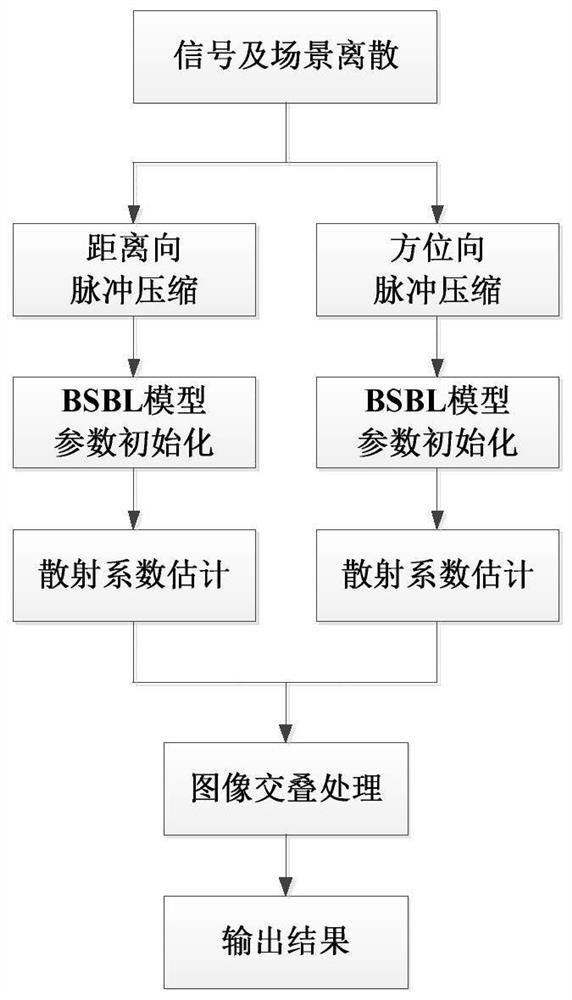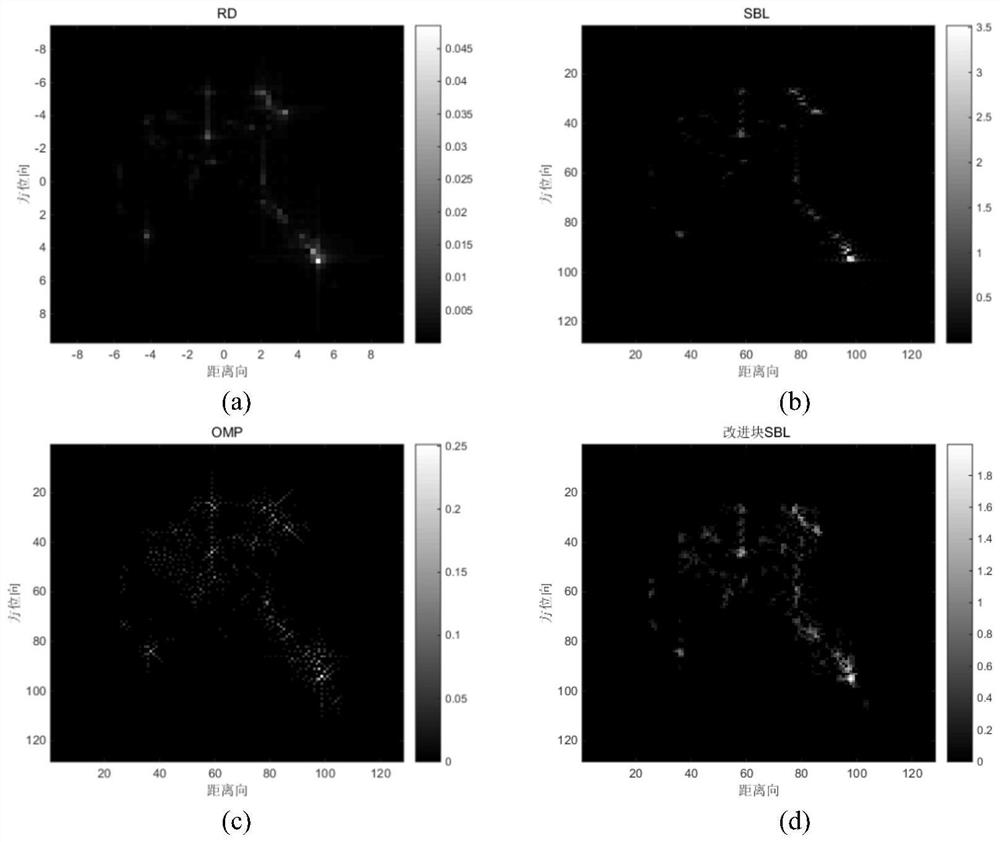A Blockwise Sparse Bayesian Learning Method for Estimating Scattering Coefficients in ISAR Imaging
A sparse Bayesian, scattering coefficient technology, applied in the field of improved block sparse Bayesian learning inverse synthetic aperture radar imaging, can solve the problem of inability to directly apply radar imaging, to improve imaging effect, eliminate fringe interference, reduce The effect of computation
- Summary
- Abstract
- Description
- Claims
- Application Information
AI Technical Summary
Problems solved by technology
Method used
Image
Examples
Embodiment 1
[0126] Example 1: This example verifies the effectiveness of the proposed block-sparse Bayesian learning ISAR imaging method, and compares the imaging results of this method with other methods under the same conditions. The methods used for comparison are range-Doppler method, sparse Bayesian learning method and matching pursuit method. The experiment uses the electromagnetic scattering simulation data of a certain type of fighter. The center frequency is 10GHz, the transmission signal bandwidth is 0.5GHz, the pitch angle is 30°, and the azimuth angle is 0°. The resolutions of the azimuth and range directions are both 0.3m, and the sweep angles are 64 points each. Imaging results compared to figure 2 shown.
Embodiment 2
[0127] Example 2: This example verifies the effectiveness of the proposed block-sparse Bayesian learning ISAR imaging method, and compares the imaging results of this method with other methods under the same conditions. The methods used for comparison are range-Doppler method, sparse Bayesian learning method and matching pursuit method. The experiment uses the electromagnetic scattering simulation data of a certain type of fighter. The center frequency is 10GHz, the transmission signal bandwidth is 0.5GHz, the pitch angle is 45°, and the azimuth angle is 45°. The resolutions of the azimuth and range directions are both 0.3m, and the sweep angles are 64 points each. Imaging results compared to image 3 shown.
[0128] Comparing the experimental results, it can be seen that compared with the range Doppler method, the image of this method is clearer without fringe interference. Compared with the sparse Bayesian learning method and the matching pursuit method, which belong to t...
PUM
 Login to View More
Login to View More Abstract
Description
Claims
Application Information
 Login to View More
Login to View More - R&D
- Intellectual Property
- Life Sciences
- Materials
- Tech Scout
- Unparalleled Data Quality
- Higher Quality Content
- 60% Fewer Hallucinations
Browse by: Latest US Patents, China's latest patents, Technical Efficacy Thesaurus, Application Domain, Technology Topic, Popular Technical Reports.
© 2025 PatSnap. All rights reserved.Legal|Privacy policy|Modern Slavery Act Transparency Statement|Sitemap|About US| Contact US: help@patsnap.com



